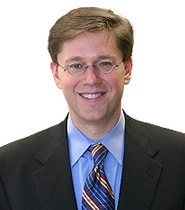Kevin Martin, the Chair of the Federal Communications Commission, called Ars Technica today to let us know that he has revised his proposal to roll out a free (and smut-free) wireless broadband service. In an effort to corral more votes, Martin has already circulated a new version of the plan, one that removes the controversial smut filtering requirement.
Why the change? "I'm saying if this is a problem for people, let's take it away," Martin said. "A lot of public interest advocates have said they would support this, but were concerned about the filter. Well, now there's an item in front of the Commissioners and it no longer has the filter. And I've already voted for it without the filter now. So it's already got one vote."
"Got anybody else?" I asked him.
"Not yet," Martin admitted with a chuckle. Then he expressed a bit of impatience with his four colleagues. "This is an item that has been pending at the Commission for several years, that the Commissioners were originally critical of not having moved forward faster," he said. "Other Commissioners said, 'We're overdue; we've got to do this.' But when an actual item is put forth where you have to make a hard decision, they say, 'Well, I'm not so sure what I want to do anymore'."
Lifeline broadband
As we have been reporting for some time, the FCC's outgoing boss has been championing a proposal to auction off a hefty chunk of the Advanced Wireless Services 3 band (2155-2180MHz) for a free service that (until now) was to come complete with smut filtering.

The license winner would be required to offer the service at a minimum 768Kpbs; it's obviously not the fastest rate in town, but it meets the FCC's new and improved definition of "basic" broadband. The provider will have to honor a Carterfone-style rule that allows any application or device to connect to the network, and the license will last for ten years, with ten-year renewal periods. The licensee must roll out coverage to half of the US population within four years and reach 95 percent of the country by the end of the first decade.
What Martin calls a "lifeline broadband service" certainly has its supporters, but it has had plenty of detractors, too, including the wireless industry, the Bush administration, key Republicans in the House of Representatives, and civil liberties advocates who have all but called the scheme government-sanctioned censorship.
But Public Knowledge, Consumers Union, and the Media Access Project, among other groups, have suggested that the basic idea, sans filtering and bolstered by stronger open access requirements, has potential. "We appreciate the potential of a new service that could provide a genuine alternative to the current wireline cable modem/DSL duopoly," they have written.
Martin wanted the FCC to vote on this issue at an Open Commission meeting scheduled for December 18 but then bowed to Congressional calls for its cancellation. The FCC is scheduled to meet via audio conference on Tuesday, but there are no agenda items attached to the event. That will be Republican Commissioner Deborah Taylor Tate's last meeting.
"Tate was one of the Commissioners who I thought was most likely to be supportive of the filtering concept," said Martin. "She's been very involved in children's issues and I think that she had spoken favorably in the past of this idea of the filter for children."
The filter concept is history now. As for the revised proposal, the agency is scheduling another Open Commission meeting for January 15. That may very well be Kevin Martin's final formal FCC appearance, and we have no word yet on what dockets will come up during the meeting.
"Typically in January all the Commission does is do reports on the status of the industry," Martin said. "That's what we've done for the last few years, saying 'Here's what the Commission has been trying to achieve. Here's where we are'."
But the Commissioners could give the go-ahead to the re-smuttified free broadband plan at any time—assuming Martin gets at least two more votes for his new proposal, and gets them quick.
reader comments